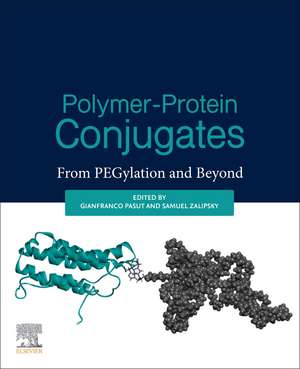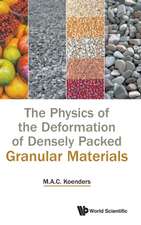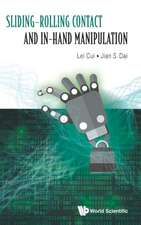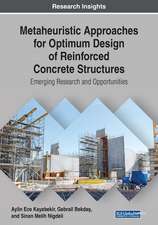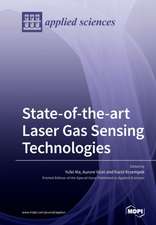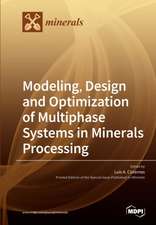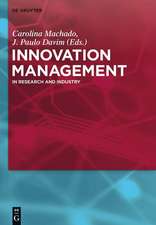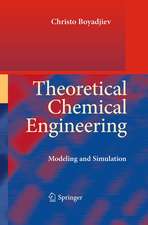Polymer-Protein Conjugates: From Pegylation and Beyond
Editat de Gianfranco Pasut, Samuel Zalipskyen Limba Engleză Paperback – 31 oct 2019
After five decades of improvements, the ideas in this book are entering into a new era of innovation because of the advances in genetic engineering, biochemistry and a better understanding of the results from clinical use of PEG conjugates in humans.
- Provides an overview on the state-of-the-art of protein polymer conjugation
- Presents both the pros and cons of polymer-protein conjugates from the point-of-view of their clinical outcomes
- Outlines advantages and potential risks of present technology based on PEG
- Offers new alternatives for PEG and new approaches for on site-selective protein modification
- Identifies future direction of research in this field
Preț: 906.30 lei
Preț vechi: 1267.29 lei
-28% Nou
Puncte Express: 1359
Preț estimativ în valută:
173.42€ • 181.06$ • 143.53£
173.42€ • 181.06$ • 143.53£
Carte tipărită la comandă
Livrare economică 28 martie-11 aprilie
Preluare comenzi: 021 569.72.76
Specificații
ISBN-13: 9780444640819
ISBN-10: 0444640819
Pagini: 512
Dimensiuni: 191 x 235 x 24 mm
Greutate: 0.87 kg
Editura: ELSEVIER SCIENCE
ISBN-10: 0444640819
Pagini: 512
Dimensiuni: 191 x 235 x 24 mm
Greutate: 0.87 kg
Editura: ELSEVIER SCIENCE
Public țintă
Graduate students and advanced researchers from academic/industrial background who are interested in protein modification and delivery. The potential users can be a pharmacologist, who want insight on this technology regarding approved product, as well as a biochemical engineer who wants learn how to design the future protein conjugates. Probably a chemist would be less involved although chemistry is at the basis of most successful conjugates. Patent attorney, PEGylation is described in many patents.Cuprins
Introduction and General Aspects of the Technology
1. Evolution of Polymer Conjugation to proteins
2. PEGylated Proteins: A Rational Design for Mitigating Clearance Mechanisms and Altering Biodistribution
3. Overcoming barriers for tumor-targeted drug delivery: the power of macromolecular anticancer drugs with the EPR effect and the modulation of vascular physiology
Toxicity and Immunogenicity Studies and Clinical Stage Conjugate Products
4. PEG-protein conjugates: Non-clinical and clinical toxicity considerations
5. Immunological responses to PEGylated proteins: anti-PEG antibodies
6. Immunogenicity assessment of PEGylated proteins, Lonquex, a PEGylated G-CSF case study
7. PEG-Protein conjugates: regulatory requirements for characterization
8. PEGylation of human coagulation factor VIII and other plasma proteins
9. Pegvorhyaluronidase Alfa: A PEGylated Recombinant Human Hyaluronidase PH20 for the Treatment of Cancers That Accumulate Hyaluronan
10. Challenges in the analytical characterization of PEGylated asparaginases
Novel Site-Selective Methods of Conjugation
11. Glycan-targeted PEGylation for selective modification of proteins
12. Sialyltransferase mediated glycoPEGylation
13. Enzymatic approaches to new protein conjugates
14. Site-specific Polymer-protein conjugates by Cys mutation
15. Site-specific PEGylation of interferon beta-1b: from bench to clinic
16. Protein modification by bis-alkylation
Alternative non-PEG polymers and architectures
17. In vivo properties of therapeutic bioconjugates composed of proteins and architecturally/functionally complex polymers
18. Poly(2-oxazoline)-protein conjugates
19. Polysaccharides for protein and peptide conjugation
20. Polysialylation of human coagulation factor VIII
1. Evolution of Polymer Conjugation to proteins
2. PEGylated Proteins: A Rational Design for Mitigating Clearance Mechanisms and Altering Biodistribution
3. Overcoming barriers for tumor-targeted drug delivery: the power of macromolecular anticancer drugs with the EPR effect and the modulation of vascular physiology
Toxicity and Immunogenicity Studies and Clinical Stage Conjugate Products
4. PEG-protein conjugates: Non-clinical and clinical toxicity considerations
5. Immunological responses to PEGylated proteins: anti-PEG antibodies
6. Immunogenicity assessment of PEGylated proteins, Lonquex, a PEGylated G-CSF case study
7. PEG-Protein conjugates: regulatory requirements for characterization
8. PEGylation of human coagulation factor VIII and other plasma proteins
9. Pegvorhyaluronidase Alfa: A PEGylated Recombinant Human Hyaluronidase PH20 for the Treatment of Cancers That Accumulate Hyaluronan
10. Challenges in the analytical characterization of PEGylated asparaginases
Novel Site-Selective Methods of Conjugation
11. Glycan-targeted PEGylation for selective modification of proteins
12. Sialyltransferase mediated glycoPEGylation
13. Enzymatic approaches to new protein conjugates
14. Site-specific Polymer-protein conjugates by Cys mutation
15. Site-specific PEGylation of interferon beta-1b: from bench to clinic
16. Protein modification by bis-alkylation
Alternative non-PEG polymers and architectures
17. In vivo properties of therapeutic bioconjugates composed of proteins and architecturally/functionally complex polymers
18. Poly(2-oxazoline)-protein conjugates
19. Polysaccharides for protein and peptide conjugation
20. Polysialylation of human coagulation factor VIII
